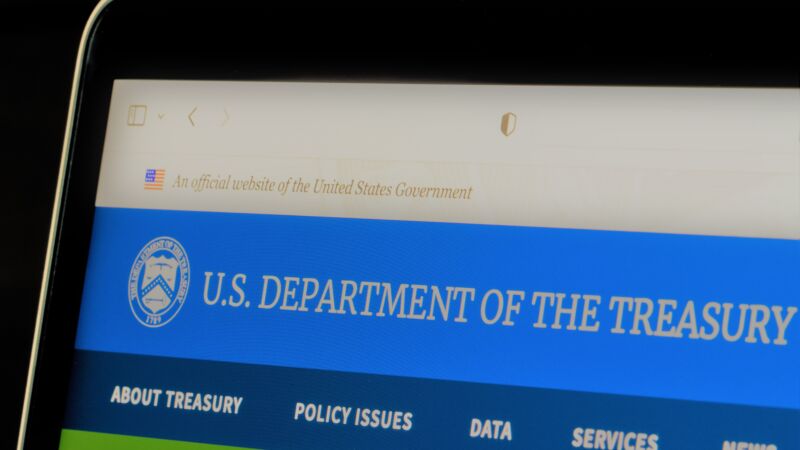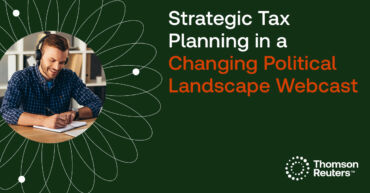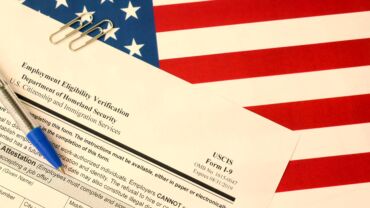On March 9, 2023, the Treasury Department released its annual “Green Book,” the Department’s guide to proposed revenue actions related to the budget for fiscal year 2024. Payroll on Checkpoint asked Jeffrey Paravano, partner at BakerHostetler and leader of the firm’s national tax practice group, to share his thoughts.
Extension of statute of limitations
The IRS recently issued another alert to businesses and tax practitioners regarding scams related to the employee retention credit (ERC). The ERC was a credit available during the height of the COVID-19 pandemic to encourage employers to retain employees on their payroll as well as continue benefits. Third parties have been aggressively advertising their “services” which include claiming the ERC for businesses retroactively through the use of amended returns, regardless of actual eligibility.
Paravano, a thirty-year veteran of handling tax controversies, explained that while the American Rescue Plan Act of 2021 extended the statute of limitations from three years to five years for ERC and COVID-19 paid leave tax creditsParavano pointed out that currently, the statute remains three years for the six remaining quarters that the ERC may be claimed and four remaining quarters for claiming the paid leave tax credits. Also, he clarified that the statutes of limitation relating to employment tax returns do not restart for purposes of IRS assessment when an amended return is filed. Paravano said, “It is not unusual for the period for assessment to expire at the same time an employer is permitted to submit a claim for refund or credit on an e-amended tax return.” If the provision is adopted, the five-year statute of limitations would cover all periods for the paid leave and ERC tax credits as well as providing at least two years for the IRS to assess on amended returns that claim these tax credits.
Constructive receipt and earned wage access
Earned wage access (EWA) programs are arrangements that allow employees to access their wages as they are earned rather than wait for their scheduled payday. Its use poses a unique issue for employers in terms of constructive receipt. In general, wages are taxable for federal withholding tax, FICA taxes, and FUTA when the employee is paid the wages and not when they are earned. This is known as constructive receipt. The Department includes a proposal in the Green Book that seeks Code Sec. 3401(b) to clarify that wages that are accessed through an EWA program would be treated as paid on a weekly pay period and amend Code Sec. 6302 to provide special payroll deposit rules for EWA pay arrangements.
Payroll on Checkpoint asked Paravano for his thoughts on how employers might handle EWA programs that may be on a less frequent pay cycle under the proposal. Presumably, an employer who normally pays its employees on a biweekly or semimonthly frequency could restrict on-demand requests only during the final week of the payroll period so that employment tax deposits would not be due before the employer’s typical deposit schedule, he theorized. However, Paravano cautioned that those employers that would permit employees to access wages any time through an EWA program would “need to adjust their payroll deposit schedules to satisfy at least the proposed weekly period standard for amounts paid out to employees.” He further added that IRS regulations that would implement the proposal may be “even more stringent than the legislative proposal itself suggests.”
Certified professional employer organizations
The budget includes a proposal that clearly states that a common-law employer who may be utilizing the services of a certified or uncertified professional employer organization cannot avoid liability for employment and withholding tax when the CPEO or PEO fails to report or remit tax. The budget references an Eleventh Circuit ruling.
To provide some background, Paraveno explained, many employers, especially in the hospitality industry, hire outside staffing companies to provide workers and often prefer that the workers be treated as employees of the staffing company rather than as employees of the hotel, restaurant, etc. Using its regulatory authority, the IRS implemented the Certified Professional Employer Organization (CPEO) program that includes staffing companies and payroll companies, so that such businesses may be treated as the statutory employer for Code Sec. 3401(d) purposes and be liable for the federal employment and income tax withholding. Paraveno noted that the requirements to be certified as a CPEO are “quite demanding, and only a small fraction of staffing and payroll companies have been certified.”
In 2020, the Eleventh Circuit ruled in TriNet Group, Inc. v. United States, 979 F.3d 1311 (11th Cir. 2020), that a payroll company was the “statutory employer” responsible for employment taxes for Code Sec. 3401(d) purposes because it controlled the payment of wages. Paravano explained that the IRS then issued a non-acquiescence in the TriNet decision, stating that, outside of the Eleventh Circuit, the IRS will continue to take the position that a company is not in control of the payment of wages if its obligation to pay wages depends upon receiving funds from a common law employer. Under the proposal, common law employers would avoid liability for employment taxes “except in limited circumstances consistent with the original legislative history and congressional intent.” Paravano pointed out that none of circumstances are explained or specified. If adopted, Paravano explained, such legislation would allow an entity to be treated as a statutory employer in only very limited circumstances so that the IRS could pursue common law employers in cases where a staffing company or payroll provider fails to timely collect and deposit employment taxes.
Chances of enactment
Paravano noted that chances are “extremely low” that significant tax legislation will be enacted in 2023 and 2024 due to the divided government and Republican control of the House of Representatives. ”In fact, I would put the odds of enactment before 2025, after the next election cycle, of any provision described in the Biden Budget or Treasury Greenbook as less than 10%,” he said. However, Paravano does see a “very strong incentive for meaningful tax legislation in 2025” with the expiration of various tax provisions at the end of 2025, but that would “largely be determined by the 2024 election results.”
Provisions that will be expiring in 2025 from the Tax Cuts and Jobs Act include:
- the exclusion from gross wages for moving expense reimbursements except as it pertains to military personnel
- the exclusion of from gross income and wages any qualified bicycle commuting costs reimbursements
- individual income tax provisions that include the elimination of the personal exemptions from withholding tax calculations and the increase of the standard deduction (both of which prompted new withholding certificates)
Other provisions that have or will expire include:
- the enhanced full business meal deduction expired after Dec. 31, 2022
- the employer credit for paid family and medical leave under Code Sec. 45S expires after Dec. 31, 2025
- the Work Opportunity Tax Credit under Code Sec. 51 expires after Dec. 31, 2025
- the exclusion of certain employer payments of student loans expires after Dec. 31, 2025
Other thoughts
Paravano also addressed the “billionaire tax” included in the FY 2024 budget. He said that the proposal to tax unrealized gains of wealthy individuals was “clearly unconstitutional.” He further noted that BakerHostetler recently filed a petition for certiorari in the Moore case (Moore v. United States). Compelling arguments in that case make clear that, while the Sixteenth Amendment of the Constitution authorizes Congress to lay taxes on income without apportionment among the states, that Congress is not permitted to treat an item as income in the absence of realization.
Take action
Thomson Reuters Checkpoint offers insights and ongoing developments for payroll practitioners. Contact a Thomson Reuters representative to learn more.










